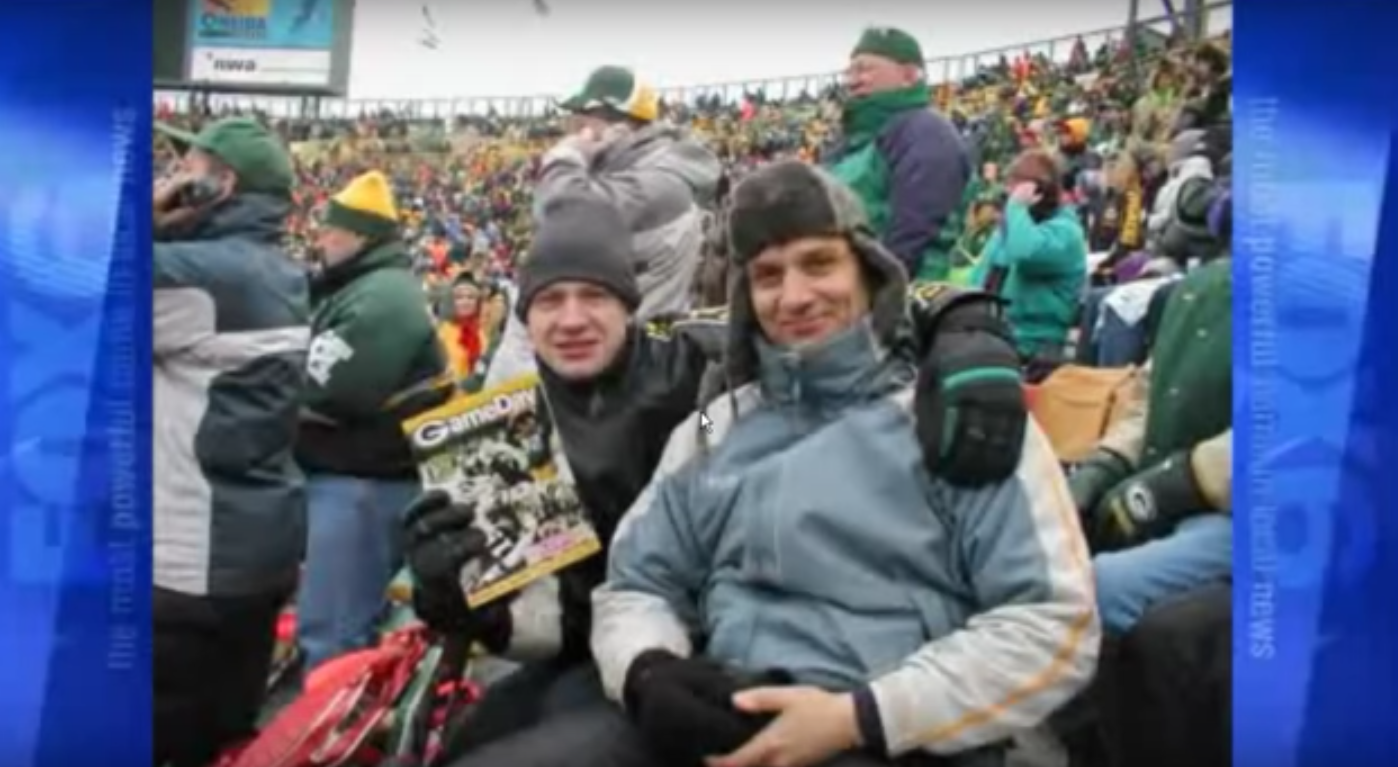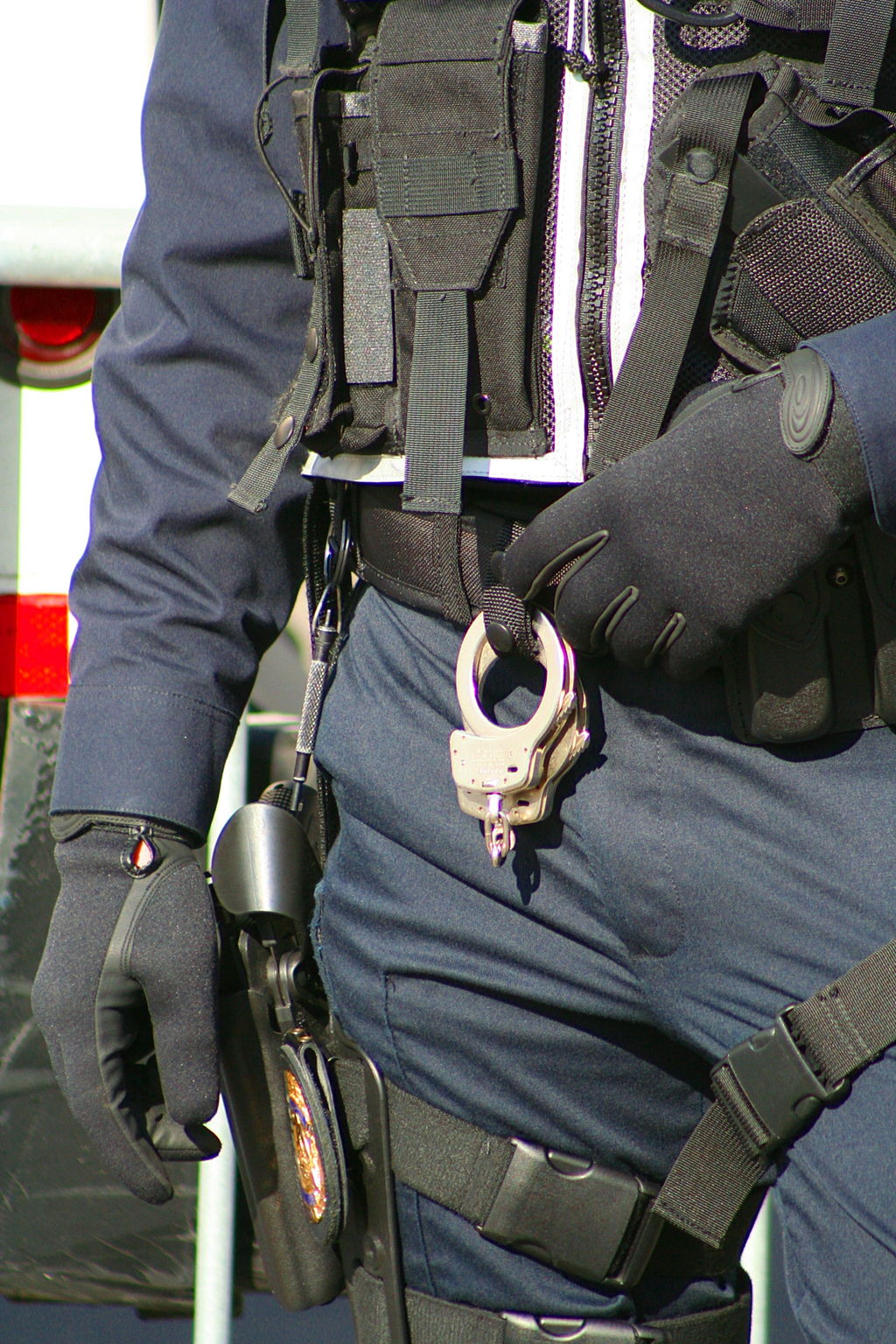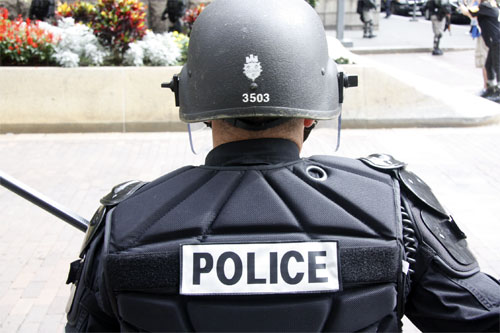The Reason Black Lives Matter Isn't Just for Black People

By:
Police reform is often framed as a black issue, and for good reason; black people, along with other minorities, are disproportionately searched and shot by police more than white people. However, as the recent killing of a white deaf-and-mute man in North Carolina demonstrates, the push for police accountability and reform should not be strictly limited to minority communities.
Daniel Harris, from Charlotte, North Carolina, was killed on Thursday after he failed to stop for a state trooper on the highway, according to local NBC affiliate WCNC. Some sort of chase occurred, which culminated with Harris being shot on the street he lived on.
"They should've deescalated and been trained to realize that this is an entirely different situation, you're pulling someone over who is deaf, they are handicapped," Harris' neighbor Martin Barringer told WCNC. He told reporters that he heard one gunshot. "To me, what happened is totally unacceptable."
The full details of his death are still unfolding, but we do know that Harris was was white.
Although at a lesser rate than minorities, there have been several other controversial killings of young white people by police officers.
Dylan Noble, 19, was unarmed when he was shot and killed by police in Fresno, California during a traffic stop in June, according to the Los Angeles Times. Some supporters shouted "white lives matter" and also carried confederate flags at a mixed-race vigil for the teenager.
Two police officers shot and killed a six-year-old boy during a car chase last year in Marksville, Louisiana, according to CBS News.
Zachary Hammond, 19, was unarmed when he was shot and killed. He tried to drive away from the officer.
Michael Bell Jr., 21, was shot in the head in front of his mother and sister near their driveway in 2004, according to NPR.
 Youtube/Plea4change/Fox 6 Milwaukee - youtube.com
Youtube/Plea4change/Fox 6 Milwaukee - youtube.com
In the wake of the 2014 shooting of Michael Brown and the Ferguson protests, Bell's father wrote an emotional essay in POLITICO in support of police reform.
"Because if a blond-haired, blue-eyed boy — that was my son, Michael — can be shot in the head under a street light with his hands cuffed behind his back, in front of five eyewitnesses (including his mother and sister), and his father was a retired Air Force lieutenant colonel who flew in three wars for his country — that’s me — and I still couldn’t get anything done about it, then Joe the plumber and Javier the roofer aren’t going to be able to do anything about it either."
However, white people as a group are more reluctant than blacks to support Black Lives Matter, according to Pew Research Center.
ATTN: talked to experts about police accountability and how police reform would benefit all Americans.
Michael Avery, professor emeritus at Suffolk Law School and former president of the National Police Accountability Project, said that police accountability is important for everyone.
"I just want to be clear that in many communities police do target black people," he said "Black people are targeted and Black Lives Matter makes a lot of sense. Having said that it's also true that police beat up white people too."
Avery said that fear and a lack of training play a big role in escalating police interactions.
"Police have a certain quotient of fear that affects them," he said. "Police leave their house in the morning but they may not know if they're going to come back." When an officer is an a situation that makes him or her uneasy, a lack of training can result in an aggressive or violent interaction, Avery said.
"Most police officers are very poorly trained," Avery argued. "They go to the academy before they start the job and then they get almost no training after that in most departments."
Avery said that in a department with poor training, the situation gets worse the longer the officer serves there. "As officers develop bad habits, they become ingrained and they get influenced by other officers," he said. "The longer the officers are on the job, there's kind of a declining level of awareness and sensitivity."
Although Avery said he had "plenty of white clients who were shot" since he started practicing law in 1970, some white people try to "minimize the problem" of police brutality.
"Somehow with this police brutality problem, there are people in the white community who would like to write it off as an exaggeration, and I think that's part of the problem," he said. "Until their kid gets stopped or shot or whatever they write it off, and then they have to rethink that."
Vince Warren, the executive director of the Center for Constitutional Rights, told ATTN: that unconstitutional police stops affect black people disproportionately, but all Americans should be concerned.
"For example, at CCR we did the stop and frisk case here in New York, which we won," he said, referring to the landmark 2013 decision that ruled the NYPD's "stop and frisk" crime prevention policy was a unconstitutional. "The problem wasn't just that African-Americans and Latinos were stopped, too many people were stopped altogether, including white people. This idea of proactive policing needs to be a thing of the past."
 Wikimedia Commons/ Elvert Barnes - wikimedia.org
Wikimedia Commons/ Elvert Barnes - wikimedia.org
Like Avery, Warren said that training is an important aspect of police reform.
"One of the key things that needs to happen is compliance with a constitutional norm." he said. "Police officers need a legitimate and articulable reason for stopping someone and very often you will find police officers having the ability to stop people for a broken tail light. Police officers need to be trained in what the constitution actually requires."
Warren said that the "blue wall of silence" keeps bad police practices from being well-known to the public.
"There are many examples of police whistle blowers who seek to [publicize] illegal or unconstitutional behavior [who were then] formally or informally rebuked and ostracized," he said.
Although bad policing affects all racial groups, there is a well-established racial component to criminal justice issues.
 Flickr/G20 Voice - flic.kr
Flickr/G20 Voice - flic.kr
To truly reform bad policing, it's important for Americans to understand that institutional racism in policing stands separately from racial attitudes held by broader society, according to Warren.
"It's possible for race relationships to improve in the broader community while police relationships deteriorate," he said. "Without understanding that, it might lead some white people to say that things are getting better when they're really getting worse."
However, Avery said that for the first time in his long law career he's hopeful that there could be meaningful police reform because of Black Lives Matter. For decades, he would see bursts of backlash against police misconduct but then the climate would settle back into the status quo. The climate in 2016 seems different.
"We're at the point where the president of the United States gets up and says, 'we've got to realize something is happening, something has to be done.'" said. Avery. "A president of the United States has never done that before."
Avery said young people need to take advantage of the momentum.
"There are a lot of young white kids out there with Black Lives Matter and people have been concerned for several years now." he said. "This is an opportunity. People have been focusing on this for long enough and seriously enough where we could really insist on better and fairer policing."
